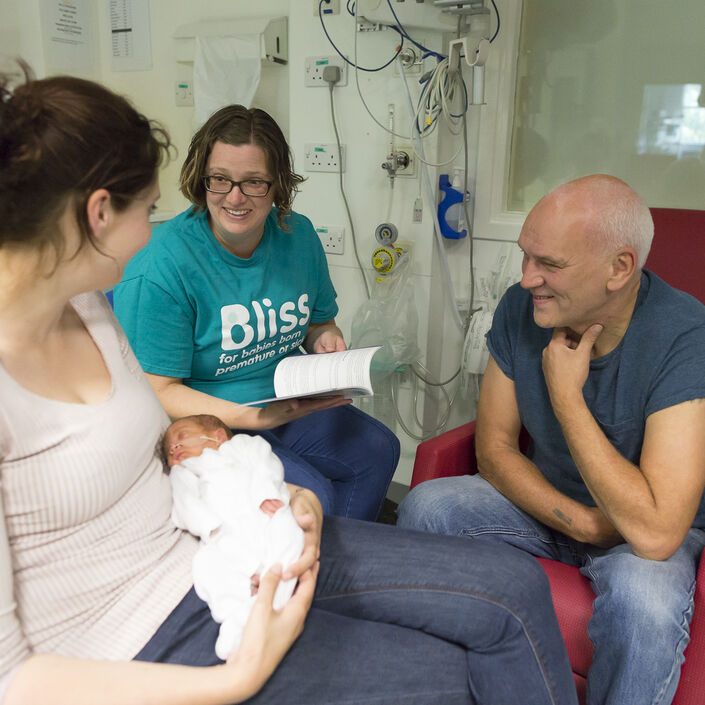When you get home from the neonatal unit, you may have questions about how to support your baby’s feeding and make sure that it is a positive and nurturing experience. The unit staff will help you to prepare for feeding your baby when you go home and will be happy to answer any questions you have. No question is too small, and it is always important to ask if you need more assistance.
Every baby is different and should be fed according to their own needs. Your baby will demonstrate signs that they are ready for a feed, such as moving their eyes rapidly, putting their fingers into their mouth, making sucking motions (rooting), or becoming restless. These are called feeding cues.
You can be sure that your baby is feeding well if they:
- Are mostly settled and calm between feeds.
- Have plenty of wet and dirty nappies.
- Are growing and gaining weight.
If you think your baby is feeding too much or too little, talk to your health visitor, GP or other healthcare professional supporting you and your baby. We have lots more information about feeding that you may find helpful.


